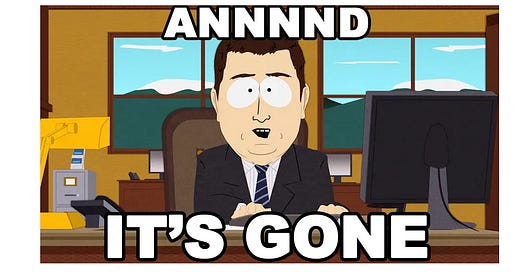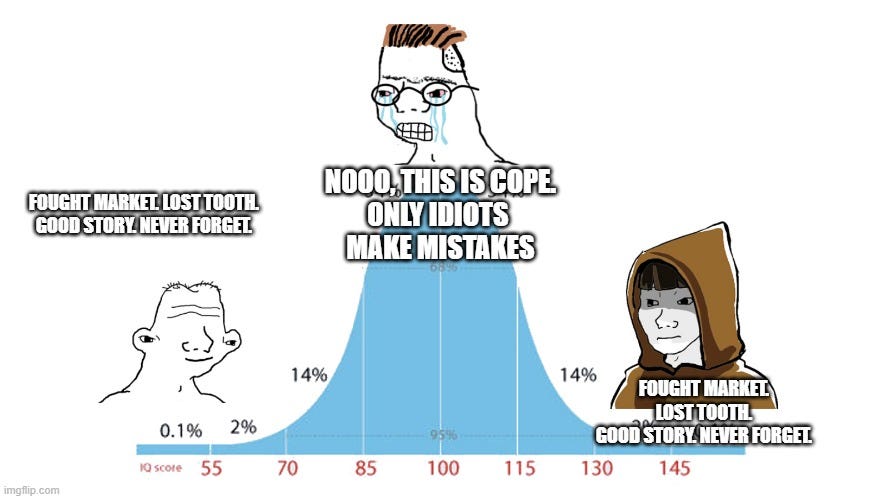How Losses Made Legends
What if the pain of losing money was the best thing that could have happened to you?
Do you remember a time when you lost money? I do.
Like when I was getting divorced and struggling with my career”. The world felt dark and depressing. The next crash, I was sure, was around the corner. The result? I lost money shorting a bull market. A few years ago, I bought warrants in a SPAC. This was supposed to be my winning lottery ticket, my path to effortless financial freedom. I was destined to be another smiling meme stock millionaire. The SPAC didn’t do a deal, the warrants went to zero. There’s nothing wrong per se with buying an option on an asymmetric outcome, but I had made the position painfully large. I had been stupid and greedy and I remember the feeling (I felt like I’d watched myself as Stan in South Park’s immortal aaand it’s gone).
Losing money is painful which, paradoxically, makes it valuable. There is no other teacher like it.
Books can remind you of the importance of risk. Your advisor’s questionnaire can help you ponder it. they pale compared to the visceral experience of seeing your account balance decline. No, thinking is not enough. To understand the importance of risk, you have to feel it.
When Jack Schwager interviewed Paul Tudor Jones for Market Wizards, he asked the legend if any trades stood out in his memory. Yes, Jones exclaimed and recounted trading cotton futures early in his career. The market was trading in a range and Jones built a substantial position expecting a breakout to the upside. After a brief dip, Jones added with a “macho-type bid that I should never have made.”
When the price started falling, it took Jones valuable time to bail out of his much too-large position. His accounts were down “something like 60 to 70 percent.”
Why did this trade stick out among thousands? Jones called it a “cathartic experience” and the moment when he decided to “become very disciplined” and “learn money management,” trader jargon for risk management. “One learns the most from mistakes,” he reminisced, “not successes.’”1
What if a significant loss was the price to pay to grasp the importance of risk and ensure a focus on survival, the most important factor for long-term success?
Mistakes leave scars and the best in the game don’t hide them. They wear them with pride. People like Jim Simons grasped the value of a visceral memory to keep them humble, vigilant, and alive in markets.






